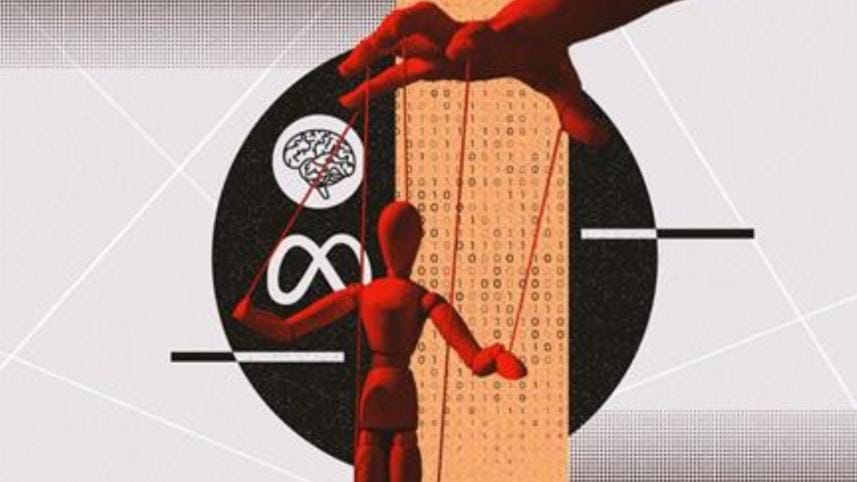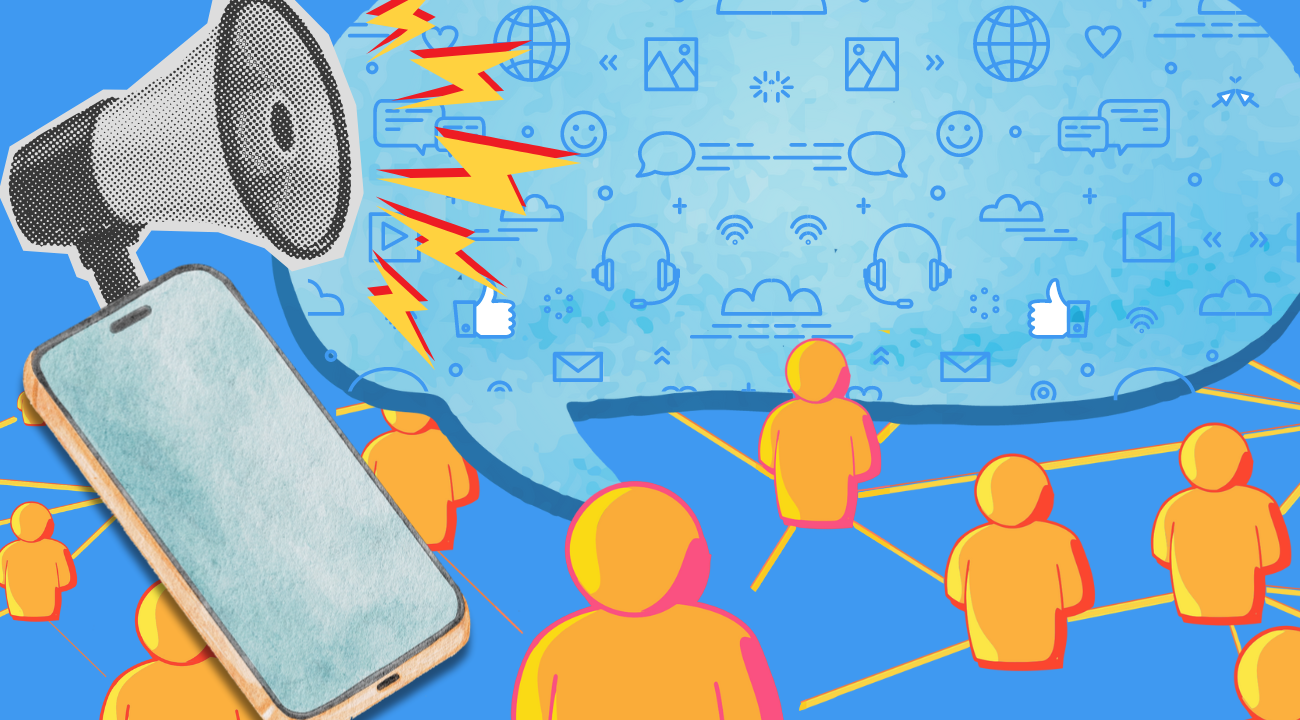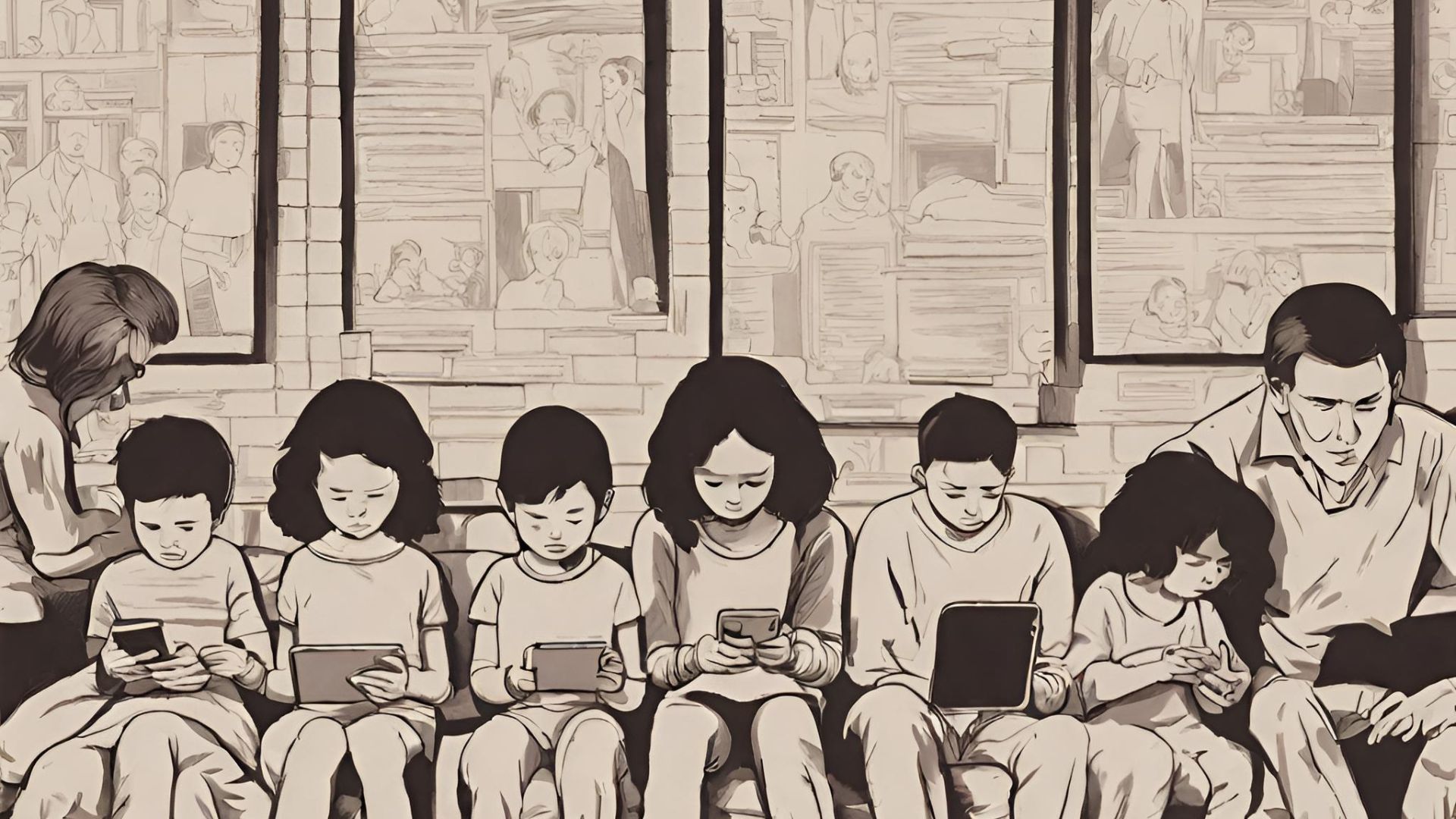How the cyberspace is being manipulated

Evgeny Morozov, in his book The Net Delusion: How Not to Liberate The World (Penguin, 2012), defined "cyber-utopianism" as a naive idea that the internet favours the oppressed rather than the oppressor. Contrary to the beliefs of the cyber-utopians, Evgeny showed how the internet has become a useful tool for authoritarian governments for propaganda, censorship, and surveillance—the three main pillars of Orwellian authoritarian control.
In the age of internet and digital technology, these three pillars of authoritarianism have become so interconnected that efforts to undermine one pillar might ruin the efforts to do something about the other two. For example, in order to avoid the control of the traditional censorship, if the people flock to social networking sites, they may fall prey to surveillance and propaganda. The more trust users put in social networks, the easier it is to use the networks to promote carefully disguised government messages and boost the propaganda apparatus.
Bangladeshi netizens are not outside this mechanism, which has become evident from the latest Adversarial Threat Report prepared by Meta, the parent company of Facebook. In its first quarterly report of 2024 published in May, Meta has announced the removal of 50 Facebook accounts and 98 pages with 3.4 million followers which are linked to Bangladesh's ruling Awami League, citing violations of its policy against Coordinated Inauthentic Behaviour (CIB).
According to Meta, CIB refers to coordinated efforts to manipulate public debate for a strategic goal, in which fake accounts are central to the operation. In each case, people coordinate with one another and use fake accounts to mislead others about who they are and what they are doing.
In the chapter titled "Bangladesh-based Network" and appendix, Meta's report exposed the fake accounts which posed as fictitious new entities or existing news organisations in Bangladesh. Some pages used the Bangladesh Nationalist Party (BNP) in their name and posted anti-BNP content. Many of these pages had a corresponding presence across several platforms, including YouTube, X (formerly Twitter), TikTok, and Telegram, in addition to their own websites.
According to Meta, the network posted primarily in Bengali and also in English about news and current events in Bangladesh, including elections, criticism of the BNP, allegations of BNP's corruption and its role in pre-election violence, as well as supporting commentary about the incumbent government, the ruling party and its role in the technological development of Bangladesh.
Meta found this activity as a result of its internal investigation into spammy inauthentic amplification activity in the region. Although the people behind it attempted to conceal their identity and coordination, Meta's investigation found links to individuals associated with the Awami League and the Centre for Research and Information, a non-profit organisation in Bangladesh associated with Awami League.
In the appendix of the report, Meta also gives a list of websites, X accounts, Telegram and YouTube channels, TikTok accounts, and names of fictitious news outlets which are used to spread misinformation with political purpose. According to Meta, the network worked to a regular shift pattern, posting between 07:00 and 21:00 GMT (1pm to 3am Bangladesh time), with a peak between 13:00 and 18:00 GMT (7pm to 12am Bangladesh time), and notably fewer posts on Fridays.
This is not the first time that government propaganda efforts have been exposed by Meta/Facebook. Earlier in December 2018, Facebook published a report titled "Taking Down Coordinated Inauthentic Behavior in Bangladesh'' where it announced removal of nine Facebook pages and six Facebook accounts for engaging in coordinated inauthentic behaviour. Facebook mentioned that after getting a tip from Graphika, a threat intelligence company that it worked with, it discovered that these pages were designed to look like independent news outlets and posted pro-government and anti-opposition content. Facebook directly linked these propaganda activities to individuals associated with the government at that time.
The irony is that on the one hand, the government has enacted cyber security laws in the name of preventing rumours and propaganda, and is asking for support from global technology companies like Facebook, Google, and TikTok to prevent rumours, block user accounts and pages, remove content. On the other hand, the ruling party and its research wing themselves have engaged in organised disinformation campaign against the opposition parties using fake accounts.
According to the latest Google transparency report, the Bangladesh government made 591 content removal requests to Google in the last six months of 2023, of which 310 or 52 percent were related to government criticism and 175 or 30 percent were related to defamation. According to Meta's latest transparency report, from July to December 2023, the Bangladesh government sought information about 2,164 users or accounts. Meta has provided information in 67.81 percent of the cases. In the same period, the government made 3,459 content restriction requests to Meta, of which 2,049 were Facebook posts and 1,357 were Facebook comments.
However, government control over the flow of information is not limited to removing or blocking content. Of course, similar to banning books or newspapers, governments block websites and apps to varying degrees depending on the situation and regime of internet-based communication. But this is not the only way to control the internet. Apart from creating various barriers to the flow of information that is dangerous for the government, there are many other ways to control people's thoughts. Some examples of these mechanisms are keeping people busy with various unimportant issues, publicising government statements or positions as neutral opinions or news, and controlling the content of discussions on social media through hired individuals and organisations, etc.
This type of activities can also be undertaken using traditional media, but by exploiting the various features of the internet and digital technologies, these activities can be implemented on a wider basis much more easily, effectively, and at a lower cost than traditional media.
With new forms of authoritarian and surveillance capitalism developing around the internet and digital technologies, it is important to hold both the government and technology companies accountable to the citizens to ensure privacy and freedom of expression. Just as unaccountable authority is harmful in the real world, it is equally dangerous in the virtual world of the internet—especially when the real and the virtual become one.
Kallol Mustafa is an engineer and writer who focuses on power, energy, environment and development economics. He can be reached at kallol_mustafa@yahoo.com.
Views expressed in this article are the author's own.
Follow The Daily Star Opinion on Facebook for the latest opinions, commentaries and analyses by experts and professionals. To contribute your article or letter to The Daily Star Opinion, see our guidelines for submission.




 For all latest news, follow The Daily Star's Google News channel.
For all latest news, follow The Daily Star's Google News channel. 

Comments